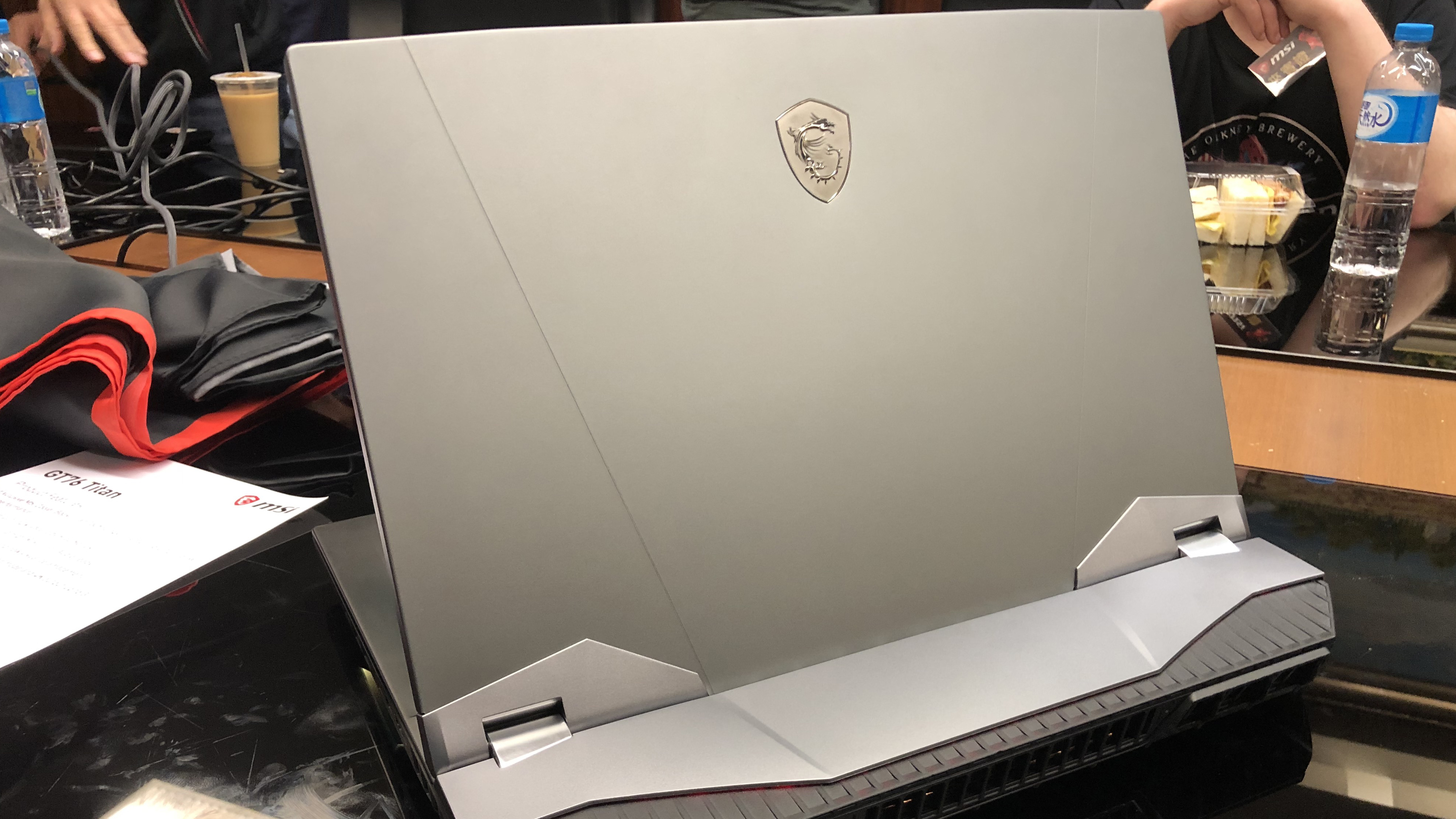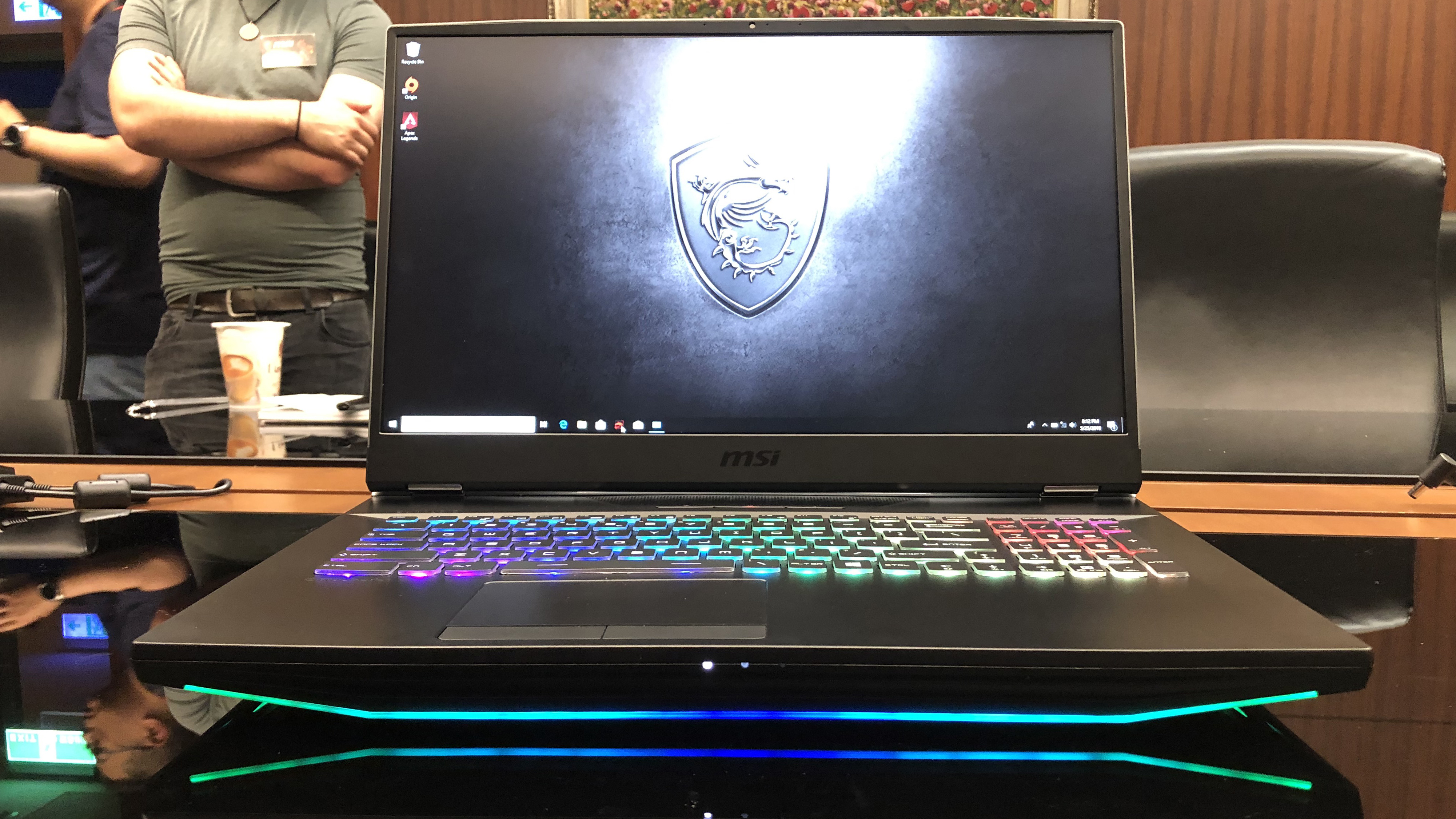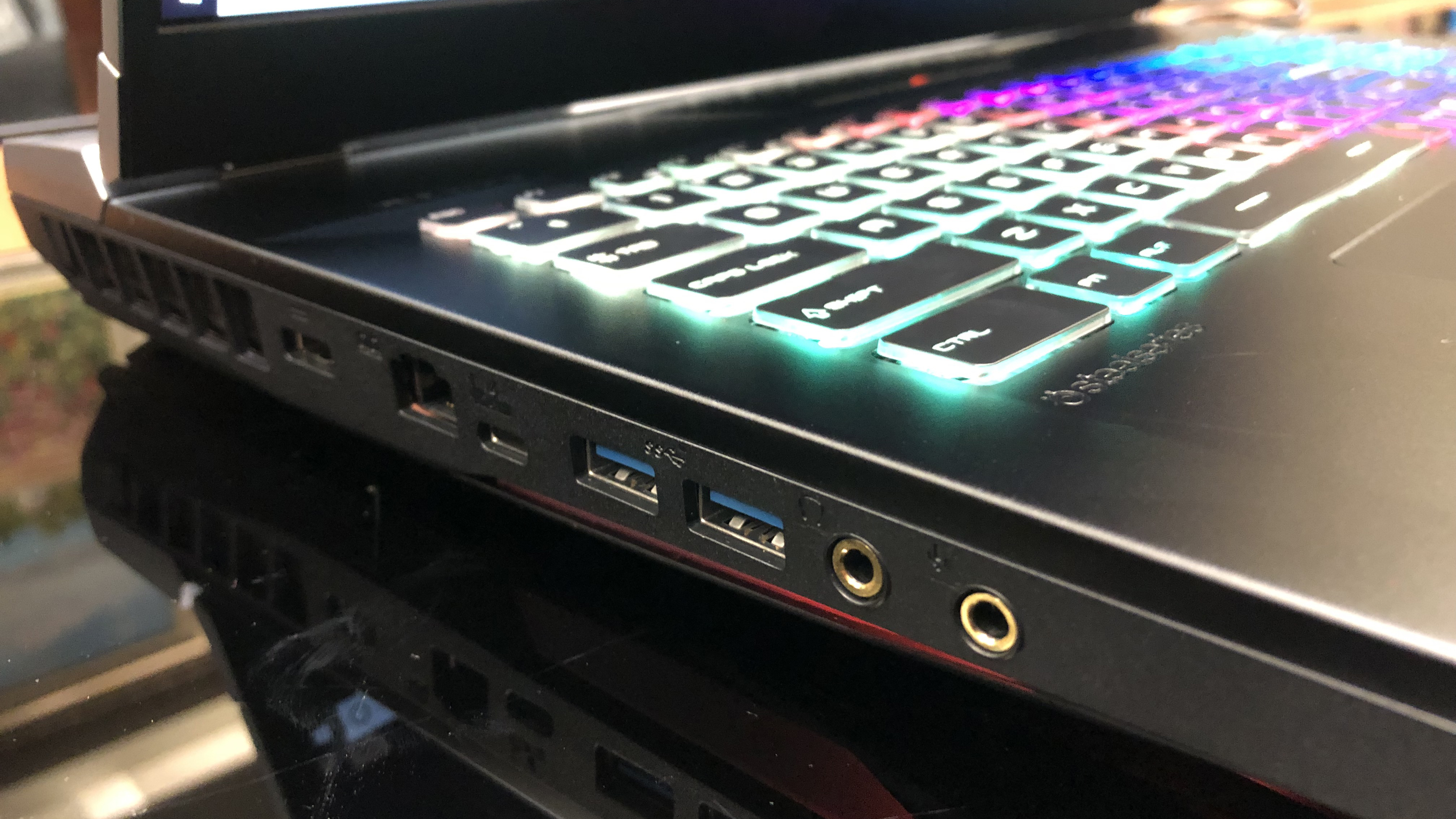The MSI GT76 Titan is an oversized musclebook with a curious 5GHz promise
But will overclockability triumph over convenience?

Though it currently sits among the best MSI laptops for gaming, the MSI GT75 Titan of yesteryear was far too bulky for my own taste. Naturally, as a vocal portability advocate, I'm more inclined to recommend the GS65 Stealth to all but the most tech savvy gamers. Despite touting a pristine 17-inch 4K display paired with an RTX 2080 GPU powerful enough to handle it, the 2018 rendition of the GT75 Titan was 2.28 inches thick, 10.05 pounds heavy and admittedly an eyesore.
A departure from the all-black plastic finish of its predecessor, the newly announced 2019 GT76 Titan boasts enhanced overclockability, by way of a massively capable Intel Core i9-9900K desktop processor, which MSI claims you can crank all the way up to 5GHz over an extensive duration. At the top end, it wields an Nvidia GeForce RTX 2080. When I visited its headquarters in Taipei, Taiwan ahead of Computex 2019, an MSI representative said he wanted to incorporate a 2080 Ti, but alas, none are available in a bespoke laptop size at the moment.
Like the so-so Alienware Area-51m, all that power requires two charging adapters, only these are rated for 240 watts each.

In terms of design, the biggest upgrade from last year's GT75 Titan is its now-stylish, aluminum lid. While the rest of the laptop is made of plastic in order to keep its innards from catching fire, the renovated silvery lid is an elegant distraction from its chunky, protruding rear exhaust. Contrary to what you might expect from an Intel-proclaimed "musclebook" wearing a metal hat, it also weighs slightly less than before, at 9.9 pounds. Unfortunately, I didn't catch the exact dimensions, but once I receive a review unit, I'll be sure to rip it a new one for its extra beefy frame.
Jokes aside, the GT76 is aesthetically more reminiscent of the company's creator-focused Prestige series laptops than of the similarly sized, and chic GS75 Stealth. To match, it has a SteelSeries keyboard designer types will appreciate for its per-key RGB illumination. Gamer types not so much, since it abandons its mechanical roots in favor of a less tactile, shallower laptop keyboard experience. Nonetheless, my fingers feel at home without the fancy switches.
As is the case with the freshly unveiled Oculux NXG252R monitor, you can personalize the keyboard lighting in SteelSeries Engine 3 rather than resorting to MSI's own solution, Mystic Light. The exception to this rule is on the back, where the signature Titan glow is limited to the color red.

If the GS75 Stealth is a cramped Manhattan apartment, the MSI GT76 Titan is a three-story house in the suburbs. In addition to the i9-9900K and RTX 2080, it has enough room for an advanced, 11-heat pipe, quad-fan cooling system that took four years to design. Specific configurations were not provided, however MSI did tell me it can accommodate up to 128GB of DDR4-2,666MHz RAM as well as up to three M.2 PCIe SSDs and either a 2.5-inch SATA SSD or hard spinning hard drive.
Keep up to date with the most important stories and the best deals, as picked by the PC Gamer team.
Like its predecessor, this GT76 Titan comes furnished with either a 1080p 144Hz or 4K 60Hz IPS display. As of now, both are LCD, but when it came to the question of OLED, I was surprised to hear that it's in the works. What's more, there's going to be a high refresh rate 4K OLED panel at some point later in the year. Until then, the full HD version I tried for myself was still visually impressive, and the 4K configurations ought to look much better since MSI claims they will cover 100 percent of the Adobe RGB spectrum.

Don't fret about a lack of ports either, as the GT76 Titan offers most of the connections you could ever need. Along with four USB Type-A ports, you can look forward to Thunderbolt 3, standard USB-C, HDMI 2.0, mini DisplayPort 1.4 and a 2.5Gbps Killer Networking Ethernet port. And yes, it supports Wi-Fi 6.
Slated to arrive sometime next month, the MSI GT76 won't be cheap. At the entry level, it will set you back a whole $3,600. Max out the specs and you'll be staring in the face of a $4,800 charge on your next credit card statement. In the meantime, might we suggest perusing the best gaming laptops you can buy right now, for less?


